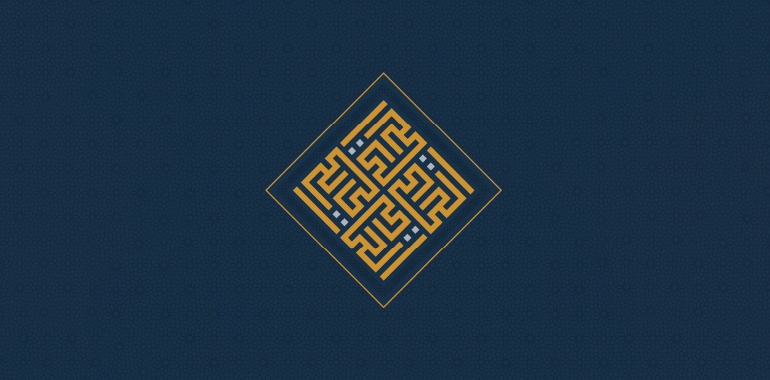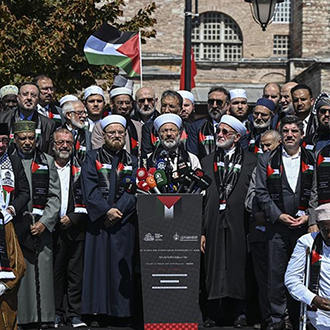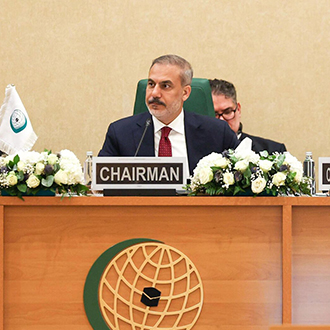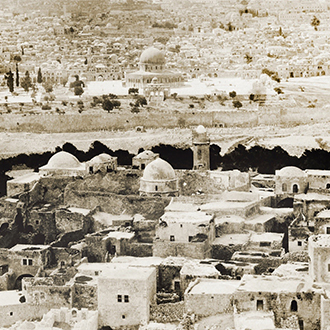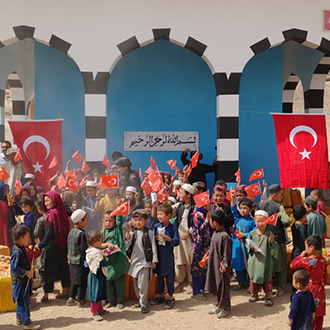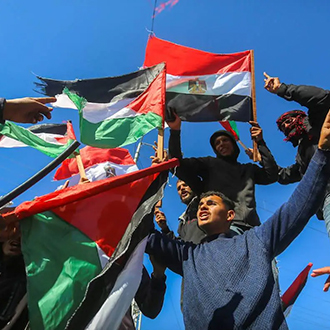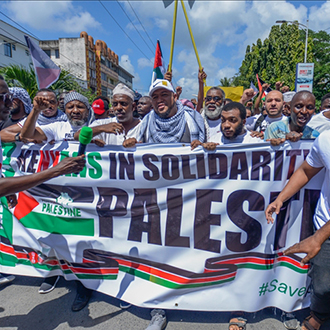The human being is the apple of the universe’s eye. Endowed with the weighty duty of serving Allah (swt), they bear an entrusted responsibility known as “amanah” as described in the Qur'an (Ahzab, 33:72). While perfection in this task may not always be achieved, the elevated nature of their responsibility places them in a significant position. In a way, human beings serve as a link between the material and spiritual realms, embodying the divine will on earth. Unlike other creatures, they alone bear this profound responsibility.
It is indeed a privilege and a source of great honor that Allah the Almighty has bestowed this responsibility upon humanity. For the entrusting of this role is not a random act. This indicates the trust and closeness between the Exalted Creator and human beings. In a sense, humans have ascended to the position of being at the level of “trustee” of Allah the Almighty.
The value of both the heavens and the earth has been elevated due to the presence of humanity. All that is splendid, useful, productive, and fortunate has been placed at their disposal. Humans hold a distinct and elevated status compared to angels, jinns, and animals. They are set apart by their intellect, volition, capability, free will, and ethical capacity in ways that distinguish them from other creatures. Indeed, a verse attests, “Indeed, We have dignified the children of Adam” (Isra, 17:70).
Indeed, the verses of the Qur'an contain profoundly unique expressions regarding the creation of humankind. These expressions point out the value and dignity of the human being. For example, the following verses are remarkable: “I have breathed into him of My soul” (Hijr, 15:29), and “What I created with My Own Hands?” (Sad, 38:75). These statements indicate the importance and the care attached to an act related to human beings and are not used for any other creatures in the Qur’an. Correspondingly, another verse asserts, “Indeed, We created humans in the best form” (Tin, 95:4). Each individual possesses distinct traits, making them a manifestation of Allah's signs. This signifies His immense power, limitless knowledge, and unparalleled creative might. In this manner, one can confidently declare, “Nothing can be more perfect!” Every limb operates in harmonious unity within its rightful place. With his biological and psychological existence, humans stand as precious and unparalleled creations (Infitar, 82:6-8).
Indeed, belief in the existence and oneness of Allah encompasses showing respect toward His creations. Respecting the human being is possible only by observing their rights. In Islam, human rights have been determined with religious orders and prohibitions like the rights of Allah. In essence, “religion” can be succinctly defined as “showing respect to Allah and glorifying Him and mercy to His servants.”
All people regardless of their differing religions, share the fundamental essence of “being human beings” and precious. Ali (ra) encapsulated this sentiment aptly, “Human beings are either your counterparts in creation or brothers in religion.” The following poignant incident underscores this principle: As a funeral procession passed by the Prophet (saw), he rose to his feet. When he was told that it was the funeral of a Jew, he asked: “Is he, not a human being?” (Bukhari, Jana’iz, 49)
A Muslim shares the same ground of being human with all people even though s/he does not share the same values with them. In this sense, all people are precious and have the right to be respected regardless of their race, language, color, gender, or age. Showing respect to human beings continues not only during their lifetime but also after their death. Thus, mistreating a deceased body is regarded as a sin, similar to disrespecting him or her when s/he was alive (Abu Dawud, Jihad, 82).
Killing a Person Means Killing Humanity
Allah the Almighty has unequivocally prohibited (haram) murder for humanity. All religions, legal and moral systems have a consensus on the opinion that killing a human unjustly is both a major crime before the law and a major sin in the presence of Allah. This sentiment is vividly conveyed in the revelations bestowed upon the children of Israel, evident in the list of prohibitions known as “the Ten Commandments”. Even though the Torah has undergone many changes, the explicit injunction “You shall not murder!” delineated in the Book of Exodus still remains (The Bible, Exodus, 20:13-17).
The prohibition against taking human life is also distinctly articulated in the Gospel. An illustrative passage can be found in the Book of Matthew, where it is stated, “You shall not murder, and anyone who murders will be subject to judgment” (The Bible, Matthew, 5:21).
The importance of safeguarding human life and the wrongfulness of unjustly taking a human's life have been explicitly conveyed to all of humanity in the Qur'an. These principles are articulated in the Noble Qur'an, the final divine scripture that holds validity until the Day of Judgment, “That is why We ordained for the Children of Israel that whoever takes a life unless as a punishment for murder or mischief in the land, it will be as if they killed all of humanity; and whoever saves a life, it will be as if they saved all of humanity.” (Ma’idah, 5:32)
An aspect of note in this verse is the inclusive use of the term “human/mankind” in a universal context. The verse does not specify a particular religion, sect, or race. Consequently, the prohibition against taking the life of an innocent individual is haram, irrespective of their identity. This is because human beings hold intrinsic worth and dignity, and their right to life is unequivocally safeguarded.
Taking the life of a human being, regardless of their affiliation, is a sin of the gravest magnitude, akin to murdering all of humanity. Conversely, preserving someone's life, irrespective of their beliefs, family, or nationality, is an act of virtue akin to safeguarding the entire human race. The safeguarding of life stands as a fundamental human right, benefiting all individuals universally.
The safeguarding of human life in Islam commences even before birth, during the time when s/he is in the mother’s womb. Our scholars have a consensus that a fetus cannot be a subject of medical intervention as long as s/he does not cause any danger to the mother’s life. That is to say, a fetus in a mother’s womb has the right of inviolability like all other living human beings. Consequently, terminating the life of the fetus through abortion or similar means is not permitted by religion.
The prohibition against taking a human life is reiterated multiple times in the Noble Qur'an. For instance, it is unequivocally stated: “Do not take a human life made sacred by Allah except with legal right” (Isra, 17:33). The punishment for intentional murder is detailed in the 93rd verse of Surah al-Nisa. Those who commit such an act will face Allah's wrath and condemnation, will be excluded from His mercy, and shall undergo severe punishment. Thus, a grievous fate awaits those who incur Allah's (swt) wrath and are deprived of His mercy.
Conclusion
Allah the Almighty has exalted and dignified humanity above all other creatures. One of the paramount objectives of the divine religions He has sent is the safeguarding of the inviolability of human life. Therefore, the human being cannot intend to kill himself or any other person under any circumstances. Neither suicide nor euthanasia can be justified by asserting, “This is my life, I have the freedom to choose.” Let alone suicide, a believer is prohibited even to desire death. This is because Allah is the sole possessor of all lives. He, who has brought all beings into existence, sustains their lives, and ultimately determines their fate, is Allah the Almighty. The human being, at this point, is only in the position of a trustee.



